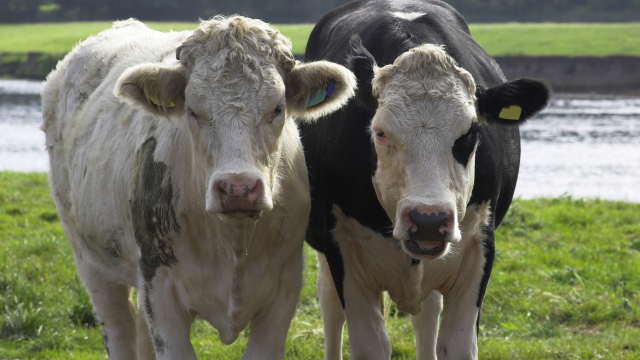Those arriving from Indonesia are facing strict biosecurity measures (think more sniffer dogs and more people performing searches) after confirmation that foot-and-mouth disease (FMD) had reached Bali. Since then, fragments of foot-and-mouth disease have been detected in imported meat.
On July 6, measures were announced by Senator Murray Watt, Minister for Agriculture, Fisheries and Forestry, calling the threat posed by FMD a “top priority”.
The Albanese Govt has ramped up tough biosecurity measures at the Aus border in response to confirmation that foot and mouth disease (FMD) has reached Bali. Builds on tighter controls since outbreak first started in Indonesia. Very serious threat and we are taking firm action. pic.twitter.com/2wM1NH8mF9
— Senator Murray Watt (@MurrayWatt) July 6, 2022
On July 20, fragments of the disease were detected in Australia. Fragments aren’t live and can’t transmit the virus, however, it did raise concerns for further imported meat products.
While there haven’t been any cases found in Australia at this stage, the concern is that there might be. Indonesia recorded its first case in May, but it’s now spread to the super popular tourist spot – 63 cases at the time of writing. In 2019, 1.23 million Australians visited Bali (any figures since then have obviously been affected by COVID). Aussie tourists holidaying in Bali risk bringing home this highly contagious virus. A virus that would totally devastate Australia’s livestock industry. The biosecurity measures are to protect Australia’s agriculture sector and prevent a local outbreak. Stopping, too, the potential slaughter of thousands of animals.
What is foot-and-mouth disease?
Not to be confused with hand, foot-and-mouth disease (HFMD), foot-and-mouth disease is a highly contagious animal disease that affects cattle, sheep, goats and pigs.
It is one of the most serious livestock diseases, affecting cloven-hoofed animals (those with divided hoofs), including cattle, buffalo, camels, sheep, goats, deer and pigs. There are seven serotypes of the virus: A, O, C, SAT1, SAT2, SAT3 and Asia1. These are further subdivided into more than 60 strains.
While it can cause serious production losses, the most significant impact of the disease occurs because of its effect on trade in livestock and livestock products. As the Australian Department of Agriculture explains, countries without the disease, which include many of Australia’s major trading partners, do not import from (or severely restrict imports from) FMD-infected countries.
What’s the risk to humans?
Well, a single case detected anywhere in Australia would immediately trigger a nationwide ban on all movement of cows, sheep, pigs and goats. Exports to the world would also be shut down. According to a 9 News report, an outbreak of the disease in 2001 cost the United Kingdom around $13 billion and led to the systemic killing of more than 6 million cattle.
Australia has not had a case of FMD since the 1870s. The Australian Bureau of Agricultural and Resource Economics and Sciences reckons a widespread FMD outbreak in Australia would have an estimated direct economic impact of around $80 billion.
But on the health front, human infections have been reported, but they are very rare and do not result in serious disease. Humans can carry the virus in their nose for up to 24 hours and can be a source of infection for animals. Additionally, FMD is not transmitted to humans in meat.
How does it spread?
FMD can spread through close contact between animals and be carried on animal products or by the wind. FMD is a viral disease that spreads rapidly. The Department of Agriculture said that foot-and-mouth disease is excreted in breath, saliva, mucus, milk and faeces. The virus can be excreted by animals for up to four days before clinical signs appear. Animals can become infected through inhalation, ingestion and direct contact. FMD virus can also be spread on wool, hair, grass or straw; by the wind; or by mud or manure sticking to footwear, clothing, livestock equipment or vehicle tyres.
Signs of FMD include blisters in and around the mouth area, drooling or limping animals.
It sounds utterly painful.
Is there a vaccine for FMD?
Vaccines can protect against the disease, but Agriculture said they do not necessarily prevent animals from being infected. Vaccination is used in many countries to control the disease in an endemic situation, however. The department also said affected animals will recover over time.
So, what’s the plan?
Well, this is why the government has put in place super tight biosecurity measures. FMD virus is most likely to be introduced in contaminated, illegally imported animal products. So don’t bring them in, please.
This article has been updated since it was first published.
